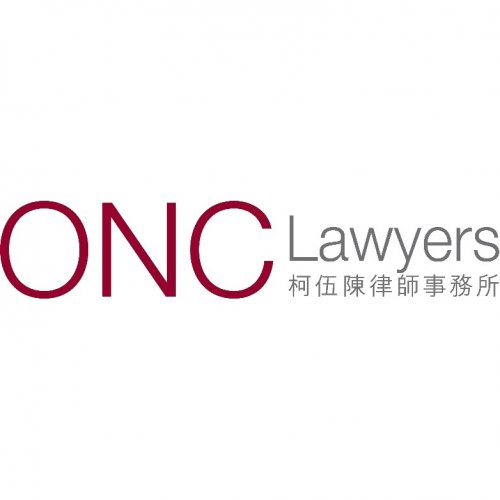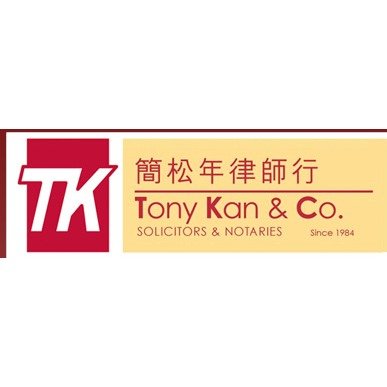Best Bad Faith Insurance Lawyers in Central
Share your needs with us, get contacted by law firms.
Free. Takes 2 min.
List of the best lawyers in Central, Hong Kong
About Bad Faith Insurance Law in Central, Hong Kong
Bad Faith Insurance Law pertains to cases where an insurance company fails to fulfill obligations to its policyholders, thus violating the good faith and fair dealing covenant within an insurance contract. This could include instances where an insurance company unjustly denies a claim, delays payments, fails to conduct a proper investigation, or does not comply with the policy contract. In Central, Hong Kong, insurance companies are expected to deal fairly and promptly, hence, acting in bad faith can lead to legal implications.
Why You May Need a Lawyer
In case you suspect that your insurance company has acted in bad faith, it could be highly beneficial to seek legal advice. A lawyer specialized in Bad Faith Insurance Law can guide you through the process, helping evaluate your case, gather necessary evidence, negotiate with the insurer, and if needed, represent you in court. Situations where you may require assistance from a lawyer include being denied a valid claim, encountering unreasonable delays in claim processing, or perceiving unfair settlement offers.
Local Laws Overview
In Central, Hong Kong, the Insurance Ordinance Cap. 41 is a key law regulating insurance operations and ensuring fair practices. The ordinance empowers the Insurance Authority (IA) to oversee the conduct of insurers and to protect policyholder rights. An insurance company found to be acting in bad faith may face sanctions and penalties from the IA. Additionally, the policyholder could pursue civil litigation. In cases of blatant bad faith, the court may award punitive damages.
Frequently Asked Questions
What is considered bad faith by an insurance company?
Bad faith could manifest as unreasonable denial of a claim, unnecessary claim processing delays, refusal to payout in full, non-disclosure of a policy's key features, or failure to conduct a fair and thorough claim investigation.
How can I prove my insurer is acting in bad faith?
Demonstrating bad faith typically requires documenting every communication, denial letter, and transaction with the insurer. Releasing the claim file and any internal memos related to the claim can also be beneficial. Consulting with a lawyer can help you piece together your case.
Can I sue my insurance company for bad faith?
Yes, you can. If an insurer violates the principles of good faith and fair dealing, you can file a lawsuit. In some cases, if the insurer's conduct was especially egregious, you could be entitled to punitive damages.
What types of compensation can I expect?
Compensation might include the initial amount your insurer should have paid, legal fees, and potentially, punitive damages. The goal is to place you in the position you would have been if the insurer had acted in good faith.
How long do I have to file a bad faith claim?
The limitation period for filing a bad faith insurance claim in Hong Kong is typically six years from the date of the insurer's violation. However, you should consult with a lawyer as soon as possible to safeguard your rights and gather necessary evidence.
Additional Resources
The Insurance Authority (IA) and the Insurance Claims Complaints Bureau (ICCB) are instrumental resources in Hong Kong. They provide education, handle complaints, and regulate insurance companies. Legal aid services in Central, Hong Kong, can also provide help for those with limited financial means.
Next Steps
If you believe your insurer has acted in bad faith, contact a reputable lawyer specializing in bad faith insurance cases. Gather all corresponding documents and store any communication with your insurer. Submit a complaint to the insurance regulatory body. If a favorable resolution is not achieved through negotiation, your lawyer may suggest proceeding with litigation. Remember to act swiftly as delay may affect the strength of your claim.
Lawzana helps you find the best lawyers and law firms in Central through a curated and pre-screened list of qualified legal professionals. Our platform offers rankings and detailed profiles of attorneys and law firms, allowing you to compare based on practice areas, including Bad Faith Insurance, experience, and client feedback.
Each profile includes a description of the firm's areas of practice, client reviews, team members and partners, year of establishment, spoken languages, office locations, contact information, social media presence, and any published articles or resources. Most firms on our platform speak English and are experienced in both local and international legal matters.
Get a quote from top-rated law firms in Central, Hong Kong — quickly, securely, and without unnecessary hassle.
Disclaimer:
The information provided on this page is for general informational purposes only and does not constitute legal advice. While we strive to ensure the accuracy and relevance of the content, legal information may change over time, and interpretations of the law can vary. You should always consult with a qualified legal professional for advice specific to your situation.
We disclaim all liability for actions taken or not taken based on the content of this page. If you believe any information is incorrect or outdated, please contact us, and we will review and update it where appropriate.

















